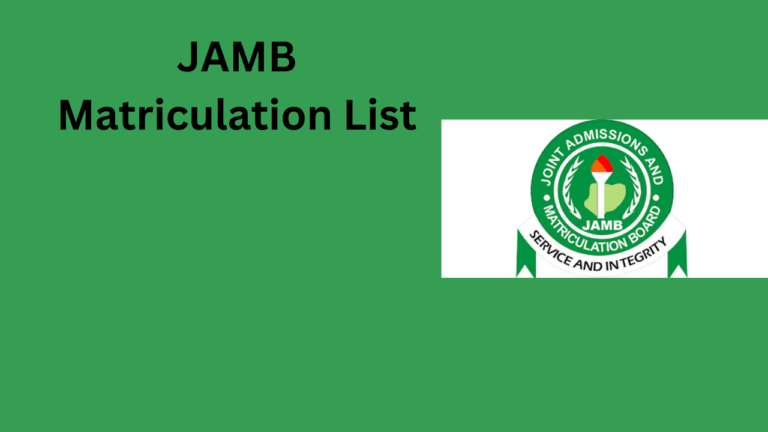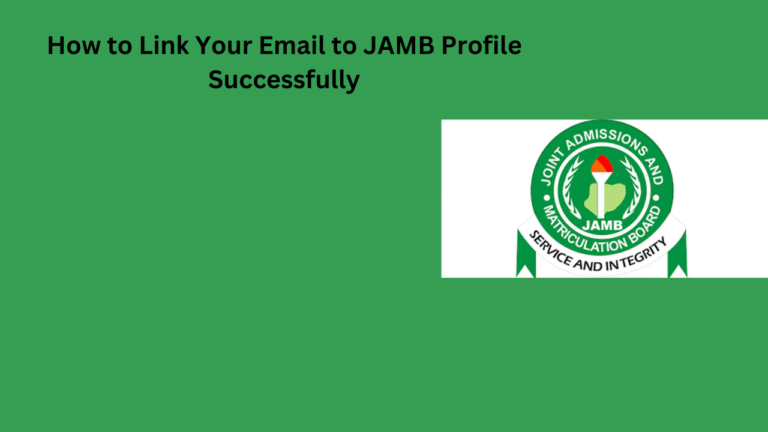Understanding the Structure and Purpose of JAMB
Introduction to JAMB
The Joint Admissions and Matriculation Board (JAMB) is crucial in Nigerian education.
It oversees the admission process into tertiary institutions across Nigeria.
Every year, millions of students sit for the JAMB examination.
This test evaluates their readiness for higher education.
The Structure of the JAMB Examination
The JAMB examination consists of multiple-choice questions.
Subjects covered include Mathematics, English, and Science disciplines.
Students choose subjects based on their intended courses of study.
The exam lasts for about three hours, testing comprehension and critical thinking.
Overall performance determines students’ eligibility for admission.
The Purpose of JAMB
JAMB aims to streamline admissions into Nigerian universities.
It helps standardize the assessment of student capabilities nationwide.
Additionally, the board ensures fairness in the admission process.
Its ultimate goal is to improve the quality of higher education in Nigeria.
Importance of Understanding JAMB
Students must familiarize themselves with JAMB’s structure to succeed.
Understanding test formats helps students prepare effectively.
This knowledge increases their chances of achieving high scores.
Consequently, students can gain admission into their desired institutions.
Common Reasons for Poor Performance among Nigerian Students
Lack of Preparation
Many students underestimate the amount of preparation needed for JAMB.
They often rely on last-minute studying, which leads to poor performance.
Consistent study habits are essential for success in this competitive examination.
Additionally, students may not fully understand the exam format and requirements.
Poor Study Habits
Students frequently adopt ineffective study techniques.
They may try to memorize information instead of understanding concepts.
This approach can hinder their ability to tackle complex questions.
Moreover, distractions from social media often interrupt their focus.
Developing better time management skills can enhance productivity.
Limited Access to Resources
Many students lack access to quality learning materials.
Inadequate textbooks and study guides impact their preparation.
Furthermore, not all schools provide effective tutoring or support.
Students need reliable resources to master the curriculum content.
Excessive Pressure and Anxiety
The pressure to perform well can create significant anxiety.
Many students fear disappointing their families and communities.
This stress can impair their focus and performance during the exam.
It is vital for students to practice relaxation techniques before the test.
Inadequate Guidance
Some students do not receive proper guidance on exam strategies.
They may not know how to approach different question types.
Additionally, mentorship plays a crucial role in exam preparedness.
Encouraging mentorship programs can improve student outcomes.
The Role of Inadequate Preparation in JAMB Failures
Understanding JAMB and Its Importance
The Joint Admissions and Matriculation Board (JAMB) is crucial for Nigerian students.
This examination determines university admissions across Nigeria.
Many students see it as an essential milestone in their academic journey.
Consequences of Inadequate Preparation
Failing JAMB can have long-term impacts on students’ academic careers.
It often leads to feelings of frustration and disappointment.
Moreover, it may limit opportunities for higher education.
Students may also experience a loss of confidence in their academic abilities.
Common Reasons for Lack of Preparation
Many students struggle with poor time management skills.
This can lead to inadequate revision before the exam.
Additionally, some students rely too heavily on last-minute studying.
They often underestimate the importance of consistent study habits.
How to Avoid Inadequate Preparation
Establishing a study schedule can greatly improve preparation.
This allows students to allocate time for all subjects effectively.
Additionally, utilizing past question papers can enhance understanding.
Students should also form study groups to foster collaboration.
Seeking Guidance and Resources
Engaging with teachers can provide valuable insights on the exam format.
Seeking help from mentors can boost academic performance.
Moreover, students should use available online resources for further learning.
This includes educational websites, video tutorials, and official JAMB materials.
Emotional and Psychological Factors Affecting Exam Performance
Understanding Anxiety
Anxiety often impacts students significantly during exams.
It creates a sense of fear that can hinder performance.
Students should recognize the symptoms of anxiety.
Common symptoms include excessive worry and physical discomfort.
Identifying anxiety triggers can help in managing them.
The Role of Stress
Stress is a common challenge for many students.
It can stem from academic pressure and expectations.
Understanding stress management techniques is essential.
Deep breathing exercises are effective for immediate relief.
Additionally, regular exercise can help reduce overall stress.
Impact of Motivation
Motivation plays a crucial role in academic performance.
Students with clear goals tend to perform better.
Setting achievable targets can boost motivation levels.
Positive self-talk encourages a proactive mindset.
A supportive environment enhances motivation significantly.
The Importance of Mindset
A growth mindset fosters resilience among students.
Embracing challenges can lead to personal and academic growth.
Students should view setbacks as opportunities to learn.
Maintaining a positive attitude is vital for success.
Surrounding oneself with positive influences further reinforces this mindset.
Building Confidence
Confidence directly influences how students approach exams.
Regular practice can help build confidence in specific subjects.
Mock exams simulate real test conditions effectively.
Receiving constructive feedback is crucial for improvement.
Acknowledging past achievements boosts overall self-belief.
Seeking Support
Support from friends and family can alleviate exam-related pressure.
Engaging with study groups creates a sense of community.
Professional counseling services are also available for students.
Peer support can provide emotional reassurance and motivation.
Sharing experiences helps normalize the feelings surrounding exams.
Strategies for Effective Study Habits and Time Management
Set Clear Goals
Start by defining your academic goals.
This will give you direction and motivation.
Break your goals into smaller, manageable tasks.
Always track your progress towards these goals.
Create a Study Schedule
A structured schedule can enhance your productivity.
Allocate specific times for study sessions each day.
Furthermore, include breaks to avoid burnout.
Stick to your schedule as much as possible.
Utilize Effective Study Techniques
Adopt various learning techniques to enhance retention.
For instance, use active recall methods like flashcards.
Additionally, practice past examination papers regularly.
This helps familiarize you with the exam format.
Seek Help When Needed
Don’t hesitate to ask for assistance from peers or teachers.
Join study groups for collaborative learning opportunities.
Moreover, consider hiring a tutor for difficult subjects.
This can provide personalized guidance when needed.
Practice Time Management
Time management is crucial for academic success.
Prioritize tasks based on urgency and importance.
Ensure you allocate enough time for each subject.
Utilize tools like planners or apps to stay organized.
Maintain a Healthy Lifestyle
Your physical health impacts your academic performance.
Ensure you eat balanced meals and stay hydrated.
Regular exercise can improve focus and reduce stress.
Additionally, prioritize getting enough sleep each night.
Utilizing Past Questions and Mock Exams for Better Preparation
Importance of Past Questions
Past questions are essential tools for students preparing for JAMB.
They offer insight into the exam structure.
Consequently, students can identify frequently tested topics.
Moreover, practicing with past questions boosts confidence.
Finding Reliable Sources for Past Questions
Students should look for credible sources of past JAMB questions.
Several educational websites compile past exams for easy access.
Additionally, many bookstores sell well-reviewed compilations.
Importantly, ensure the materials are up to date.
Mock Exams as a Preparation Strategy
Taking mock exams is another effective preparation method.
Mock exams simulate real exam conditions.
This practice helps students manage their time better during the test.
Furthermore, they can identify areas that need improvement.
Creating a Study Schedule
A structured study schedule enhances preparation efforts.
Students should allocate specific times for practicing past questions.
Incorporating mock exams into the schedule is also crucial.
This strategy ensures balanced coverage of all subjects.
Joining Study Groups
Study groups can greatly enhance understanding of difficult topics.
Collaborating with peers allows for sharing insights and resources.
Additionally, group discussions can provide varied perspectives.
Importantly, these sessions can motivate students to stay focused.
The Importance of Choosing the Right Study Materials and Resources
Understanding Study Materials
Study materials are essential for academic success.
They provide the necessary information and guidance.
Using the right materials enhances your understanding of topics.
They also prepare you for exams effectively.
Types of Study Resources
Various study resources are available for students.
- Textbooks are foundational and comprehensive.
- Online courses offer flexibility and diverse learning methods.
- Practice tests simulate the actual exam experience.
- Study groups encourage collaboration and knowledge sharing.
Choosing Quality Materials
Selecting high-quality materials is crucial for effective study.
Look for reputable authors and publishers in your subject area.
Additionally, seek recommendations from teachers or successful students.
Always ensure materials are up to date with the current syllabus.
Evaluating Online Resources
When using online resources, verify their credibility.
Check for reviews or endorsements from trusted educators.
Moreover, look for interactive content that engages you.
This can include videos, quizzes, and discussion forums.
Creating a Study Plan
A study plan helps organize your study sessions effectively.
Incorporate different types of materials into your plan.
Alternate between textbooks, online resources, and practical exercises.
This variety keeps your study sessions interesting and productive.
Maximizing Study Time
To maximize your study time, eliminate distractions.
Create a quiet workspace where you can focus deeply.
Additionally, set specific goals for each study session.
This practice helps maintain motivation and direction.
Seeking Guidance from Successful Candidates and Educators
The Value of Mentorship
Mentorship plays a crucial role in academic success.
It offers personalized guidance tailored to individual needs.
Moreover, mentors share experiences that can motivate students.
This gives learners a clearer path to eschew common pitfalls.
Connecting with Successful Candidates
Successful candidates can provide invaluable insights.
They understand the challenges faced during JAMB preparation.
Additionally, they can recommend effective study strategies.
Participating in forums or study groups can facilitate this connection.
Learning from Educators
Educators bring a wealth of knowledge and experience.
Their feedback can identify strengths and weaknesses in students.
Furthermore, they can suggest resources and materials for study.
This guidance can significantly improve performance on the exam.
Building a Supportive Study Group
Working with peers creates a supportive learning environment.
A study group encourages collaboration and knowledge sharing.
Moreover, group members can hold each other accountable.
This helps maintain motivation and focus on study goals.
- Share resources and study materials.
- Discuss challenging topics together.
- Practice past questions collectively.
Utilizing Online Resources
Online platforms offer diverse learning resources.
Students can access videos, quizzes, and forums easily.
This flexibility allows learners to study at their own pace.
Additionally, many websites provide free practice tests.
These can help familiarize students with the exam format.
Time Management Tips During the Exam to Reduce Anxiety
Understand the Exam Structure
Familiarize yourself with the exam format before the day of the test.
This knowledge helps reduce surprise and anxiety during the exam.
Review the types of questions and subjects covered in the JAMB.
Understanding the structure aids in better preparation and time allocation.
Practice with Timed Mock Exams
Regularly taking timed practice exams can enhance your timing skills.
Simulating the exam environment helps you manage your time effectively.
Through practice, you develop a natural pace for the actual test.
Adopt strategies to improve your speed without sacrificing accuracy.
Develop a Time Allocation Strategy
Create a clear plan for how much time to spend on each question.
Divide the total exam time by the number of questions to find your benchmark.
For instance, if you have 100 questions in two hours, aim for 1.2 minutes per question.
Adjust your pace based on question difficulty, allowing yourself extra time for complex items.
Stay Calm and Focused
Control your anxiety by employing deep breathing exercises.
Take a moment to breathe deeply before starting the exam.
Focus on each question one at a time, avoiding distractions.
Maintain a positive mindset, reminding yourself of your preparation.
Use Breaks Wisely
If allowed, take short breaks to clear your mind during the exam.
Pause for a few seconds to stretch or close your eyes when feeling overwhelmed.
Breaks can help to refresh your focus and reduce fatigue.
However, ensure these pauses do not consume too much of your time.
Review Your Answers Efficiently
Leave time toward the end to review your answers if possible.
Quickly scan for any questions you might have misinterpreted.
Checking your work helps identify careless mistakes that can cost points.
However, be cautious not to change answers unless you are confident.
The Impact of Socioeconomic Factors on Students’ Exam Readiness
Understanding Socioeconomic Background
Many Nigerian students come from varying socioeconomic backgrounds.
This diversity affects their access to educational resources.
Generally, students from wealthier families have better opportunities.
For example, they can afford private tutoring and exam preparation materials.
In contrast, students from lower-income families face significant challenges.
The Role of Family Support
Family support plays a crucial role in students’ academic success.
Students with supportive families tend to perform better in exams.
Encouraging parents can boost their children’s motivation and confidence.
Conversely, students without such support often struggle.
They may feel isolated and lack the drive to excel academically.
Access to Quality Education
The quality of education influences exam readiness among students.
Schools in affluent areas often offer superior resources and facilities.
Students in these schools are usually better prepared for standardized exams.
However, many Nigerian public schools lack these essential resources.
This disparity leads to unequal preparation for the JAMB exam.
Impact of Economic Disparities
Economic conditions greatly affect students’ study environments.
Students facing financial struggles often lack a quiet place to study.
This can hinder their ability to focus and prepare effectively.
Moreover, financial constraints can limit access to technology.
In today’s digital age, technological access is vital for learning.
Strategies to Mitigate Socioeconomic Challenges
Raising awareness about these challenges is crucial.
Communities can create support networks for struggling students.
Furthermore, schools can offer free access to study resources.
Providing financial assistance for necessary materials can also help.
Ultimately, a collaborative approach can improve exam readiness for all students.






